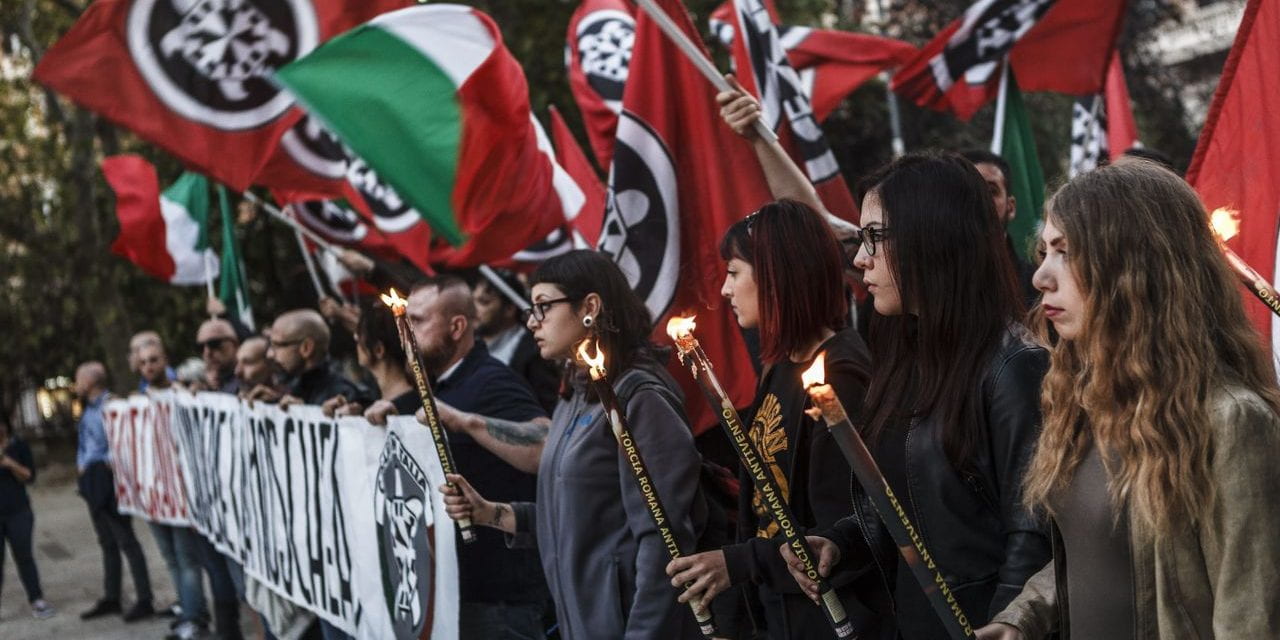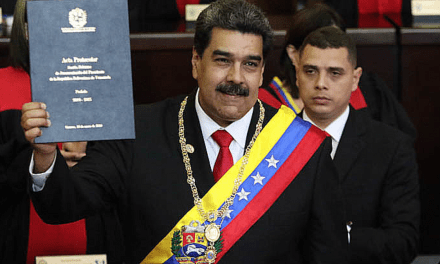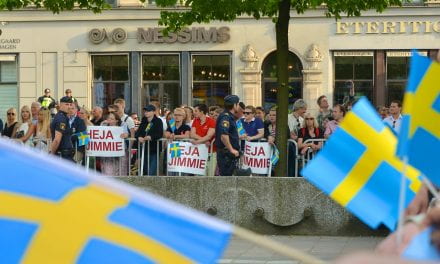Introduction
From Dark Age To Republic
The Italy of the early 20th century suffered. There seemed to be no end to its decline. The period was marked by conflict and violence, decimation abroad in two World Wars, governmental intrigue and corruption, as well as all manners of chaos to go along with it. Against a backdrop of economic crises and violence we find Catholics on strike, socialists vying for revolution, and fascists attacking in what is called both the Two Red Years or the Red Biennium (1919 – 1920). From this pandemonium, mass poverty, and the destitution interspersed with politically driven violence, Benito Mussolini emerges.
In 1922 Mussolini and roughly 30,000 fascists began their infamous March on Rome. Italy was entering its dark age. Italy, the great progenitor of fascism, was preparing to influence several generations of despotic tyrants around the globe and through history, but not before nearly destroying itself first. Political suppression and disenfranchisement occurred at home while the Allied powers positively disemboweled Italy abroad. When an Allied advance came sweeping through Italy itself, Mussolini was found trying to flee to the north. He was summarily executed by Italian Resistance Fighters and the Italy of today began taking shape.
A sharp exhale of vitriolic hate was taken in 1946, followed by an inhale of humaneness and good governance. The Italian King, Emmanuel III, who handed Mussolini power during his March on Rome in 1922, was now abdicated. His son, Umberto II, was made to call a constitutional referendum. The results of that referendum exiled Umberto and his royal house and made Italy into a Democratic Republic. Italy is profoundly proud of that Republic. Going into the 1950s, it became a founding member of the European Union’s precursor: The European Economic Community. Furthermore, Italy has come to stand for equality, the rule of law, human dignity and peace on continental Europe.
However, recent events are troubling. Italian rightism is once again on the rise; there are elements within Italian society that sound very much like Mussolini and his Blackshirts, and this is all occurring within the legitimate structure of Italy’s political system and government.
Current Politics
Back in March of 2019, Italy’s government was captured by a populist coalition. The anti-establishment party Five Star Movement (M5S) and the extremist Lega (League Party) made brilliant runs, securing 222 and 124 seats respectively. Both fell short of the 316-seat majority needed to control Italy’s government, but quickly formed an alliance. [1] With this, the character of Italy seemed changed. The nation was now led by a cast of anti-migrant, Eurosceptics. M5S was founded on anti-establishment and anti-E.U talking points. The League was even wilder after talking of secession and the mass expulsion of migrants. One must note the shock with which the establishment regarded this rise to power, and the moral indignation that the mainstream media has hurled at it. Everything Italian and European seems opposed to them and their backwards, hateful policies, yet the coalition was swept in with popular enthusiasm. Much wrangling has seen the balance of power within the coalition tilt towards the League, and its charismatic leader Matteo Salvini. His rapid rise to power had culminated last year in his appointment as Interior Minister, and since then the League has grown to overshadow its senior partner, M5S. [2] This surge was apparently intoxicating to Salvini. He chose to risk it all in a bid to grab sole power, abandoning his party’s partnership with M5S and in many eyes attempting to make himself Prime Minister. [3] The attempt failed. M5S responded by forming a coalition with the Centre-Left Democratic Party (PD) instead, and Salvini soon found himself ousted from parliament entirely. It would seem that the forces of good had won. M5S was in partnership with a more reasonable and pro-E.U partner, a new government was ushered in and Salvini was relegated back to party rather than parliamentary politics. But this repudiation would prove to be short-lived.
The events in Italy over the last four months revealed the contentious nature of its politics as much as it does the effectiveness of its democracy. A sweeping rise in right-wing populist sentiment along with the resurgence of the previously ousted League party, has combined to face down a scrambling and often inadequate coalitionary government. Italy does not look fascist in the least, nor is its constitution being circumvented. In fact, it displays the hallmarks of democracy, just in reverse. But, the recent happenings in Italy hint at the possibility of a hateful, fascist, right-wing ascension by way of those very legitimate democratic processes. In other words, the establishment is so bad at politics that it may lose to bigoted forces, fair and square. How possible is it for Fascism to rise from within a democracy, legally and legitimately? Quite easily. This is not historically unprecedented, and with modern Italy as case study, we will examine why.
Italian Populism
Tangible Gains
We begin with an examination of Italy’s scorching populist sentiment. In mid-October, a massive right-wing rally took place in Rome. Salvini spoke before a nationalistic back-drop of frothing fans and the Italian flag with his usual charisma. He’s quoted as saying “This is the Italy that works and suffers, that dreams and hopes. We are the people against the elite, we will change the history of this country.” This rally followed not long after Salvini and the League’s ousting from power and boasted a turnout of 50,000 individuals in the Piazza San Giovanni, a typically leftist bastion. [4] The symbolism is apparent. The far-right filled up a Plaza typically associated with leftist movements and stances. In much the same way, Italy’s far-right has slowly encroached upon the left’s ideological foothold – suddenly and boldly. This rally rests upon viler sentiments, however. It is not mere enthusiasm and fashion that drives it, but a new normalization of hate.
Normalized Racism
A poll conducted in early November reports: “The polling firm, SWG, questioned a sample of 1,500 people of whom 10% said racist acts were always justified and a further 45% who said racist acts could be acceptable depending on the situation .” [5.] Blatant acts of racism simply are not as mortifying as they once were. A prominent senator and holocaust survivor faced anti-Semitic death threats in mid-November. [6] The talented striker, Mario Balotelli, was mocked with ape-like chants around the same time. [7] All over Italy, instances of racism seemed to constantly arising. Libyan migrants have been derided, landlords have proudly admitted to discriminatory practices and sports papers have ran racist headlines. Worst of all, the far-right tends to respond to these episodes with silence or impunity. For example, Salvini issued a defamation lawsuit to Cecile Kyenge back in 2018 when she spoke out against the racist attacks she was receiving from the League. [8] Racism is a key and underlying facet of Italy’s roaring populism, receiving from the League. Racism is the key and underlying facet of Italy’s roaring populism, and with the successful maneuvering of Salvini and the League, that racism becomes more open and audacious.
Euroscepticism
The other component of Italian populism is Euroscepticism. Members of the far-right in Italy can occasionally sound like Brexiters, although Salvini is on record stating he does not want to leave the E.U. [ 9] What’s undeniable however, is that Italy experiences economic pressure directly from the European Union (E.U) itself. This phenomenon was behind Italy’s decision to draft a Web Tax into its 2020 budget. “Rome has been struggling to find resources to avoid a sales tax rise worth around 23 billion [euros]. The country has twice risked sanctions for its excessive debt.” [10] Putting aside the international risks of levying a three percent tax onto American tech giants, thereis a domestic risk as well. If economic pressure continues to mount, populist sentiment will rise in tandem. Salvini and his allies will point to E.U policies and leftist ideologies as the cause of hardships. The perceived soundness and legitimacy of far-right philosophies will skyrocket as a result, and grassroots racism and Euroscepticism along with it. It must be thoroughly understood that it is the populist furor that is propelling Salvini back towards power and that populism is the enabler of his comeback.
Salvini’s Resurgence
The Capture of Umbria
The resurgence of the previously ousted Lega and its leader Salvini is the most worrying trend of Italy’s current events. This resurgence took on an empirical dimension in late October, when the far-right captured the region of Umbria, viewed largely as a left-wing stronghold. “The right-wing alliance’s candidate in Umbria, Donatella Tesei, won with more than 57% of the vote– comfortably ahead of the 37% received by the centre-left coalition government’s candidate.” [11] A crushing defeat in critical left-wing territory is the strongest evidence yet of a Salvini-League resurgence. What’s worrisome in particular is that the same coalition that ousted Salvini – the Five Star Movement and centre-left Democratic Party – joined forces to stop him here but were humiliated. Could the scorching wave of populism and careful regrouping of Salvini’s Lega result in parity? Salvini originally miscalculated and attempted to take a majority in government without M5S. But was this merely a miscalculation of timing? As time progresses, it seems that the League’s return to parliament is all but inevitable and that it will be the senior, rather than the junior partner this time around.
Rightist Cohesion
The League and its allies are organized, active and determined. They display a political skill and discipline that the coalition government seems incapable of. What’s more, they are able to generate far more enthusiasm from their base than the M5S and PD from theirs respectively. Italy’s establishment has the blessing of the E.U, the blessing of the mainstream media, no shortage of external defenders and those willing to attack the rightist elements within the country, but it seems to matter not. The coalition government is badly tottering. It is one thing for Salvini and his partners to perform well. It is another thing entirely for the standing government to constantly fumble and throw the right cannon fodder. The left-wing Mayor of Rome is facing major strikes and calls for resignation as the city drowns in uncollected trash and a sub-par transportation system. Mayor Raggi was elected in 2016, and has failed to deliver on her promise 3 years later of making the city “liveable again.” [12] On a larger scale, the coaliton government that ousted Salvini seems to be breathing its last breaths.
Leftist Indiscipline
Between the M5S and PD, Italy’s Five Star Movement is the senior partner and must play a central role in the running of Italy’s government. It’s ability to do that is now in serious question. It was revealed on the 18th of November that the M5S does not have total control over its Members of Parliament (MPs). “Fourteen 5-Star lawmakers defied Di Maio last month by voting down a government plan to save a heavily polluting steel plant in southern Italy granting legal immunity to its owners while they carried out a clean-up plan.” [13] The desirability of this particular policy, its legality and else is largely irrelevant. What’s critical is that this episode reveals that the lead party of Italy’s current government is suffering internal dissension, which in turn is shaking the coalition. While the coalition suffers infighting and collapsing trust, Lega and Salvini are shoring up on political capital. As M5S comes to be viewed as unreliable by its allies, the League is increasingly deferred to by its partners in a show of solidarity. Italy’s current government is a jilted tower and Salvini is an oncoming wrecking ball.
Legitimate Fascism
Defining Fascism
A short span of recent human history gave rise to horrors unimaginable just a century ago. These horrors include the Great Depression, the Spanish Flu, two world wars, mass genocides, a Cold War and its proxies incidents, such as the Cuban Missile Crisis. The 20th century was about dying and killing. The scale and rate at which that occurred was apocalyptic. The reasons why this all occurred are multi-layered and complex. But in the simplest terms possible, the horrors of the 20th century were enabled by the fusion of new technology with new ideology. Fascism was chief within the latter.
But what is Fascism? It has become a catch-all word. Overused and abused like the terms populist, nationalist, Nazi, racist. Our overuse and indiscriminate use of the term is threatening to render it meaningless. This may, in fact, be behind the reason why Salvini finds it so easy to shrug off accusations of being a fascist. Stanley Payne acknowledges this in A History of Fascism 1914 – 1945: “Fascist has been one of the most frequently invoked political pejoratives, normally intended to connote ‘violent,’ ‘brutal,’ ‘repressive,’ or ‘dictatorial.’ Yet if fascism means no more than that, then Communist regimes, for example, would probably have to be categorized as among the most fascist, depriving the word of any useful specificity.” [14]
But the word clearly means something. The specific images conjured up by the word fascist, triggers memories of specific historical moments and events for the people hearing it in Italy. That memory is behind the revulsion at Salvini on the one hand and the patriotic furor he has ignited on the other hand. President Franklin D. Roosevelt provides a particular insight: “The liberty of a democracy is not safe if the people tolerated the growth of private power to a point where it becomes stronger than the democratic state itself. That in its essence is fascism: the ownership of government by an individual, by a group, or any controlling private power.” [15] But we must go further, for the individual, group or controlling private power is specifically of a nationalistic character. It ascends state and race above all else. Jan Nelis cites Mussolini in her work, Constructing Fascist Identity: Benito Mussolini and the Myth of ‘Romanita.’ In it, Mussolini declares: “Rome is our point of departure and of reference; it is our symbol, or if you like, it is our Myth. We dream of a Roman Italy, that is to say wise and strong, disciplined and imperial. Much of that which was the immortal spirit of Rome resurges in Fascism.” [16] Salvini and the League may not sound anywhere near as extreme in their rhetoric, but nor did Mussolini and his Blackshirts when they first began.
The Risk
The events that have elapsed over the past four months in Italy have been potently significant to the political process. While elections have been few and far from national, varying undercurrents are clearly identifiable and threaten to alter the political landscape. This is based firstly, in the fact that Italy’s political culture is fragmented. No one desires to overthrow the democratic republic as it is, but many disagree on what it should pursue and how it should pursue it. We see this fragmentation very clearly across October and November, as one side insists on being pro-E.U. while the other recedes into nationalism. Italy is arguing over the “what.” To be pro- or anti-migrant, pro- or anti-eurozone, pro- or anti-progressive. Even in the case of coalition formation, there still exists an inconsistency in regards to how work should get done, and how the proposed aims should be achieved. One needs only to examine how badly the M5S and PD gets along to find this. The appeal of Salvini, the League and their allies then, might be the solidarity and oneness that they exude. The purity of ideology that they display, contrasted with the flip-flopping M5S and lukewarm PD.
Despite all of this, one may be tempted to breathe a sigh of safety. For all the populist shouting and right-wing provocations, Italy is still functioning democratically after all. Elections are free and open. Speech – even when hateful – is not suppressed. The press is able to say what it wants, as can the common man and woman. But any sort of relaxation here would be naïve. We must firstly consider the increasing boldness with which Italy’s right is conducting itself. On the 29th of November, an emerging Nazi party was raided by the police. It was found that they desired to be openly Nazi, had accumulated weapons, and were attempting to link with other pro-Nazi groups across Europe. [17]
Let us return to the original Nazis then. The party that gained traction during the Weimar Republic years. The vile, violent and hateful ones that rose to power democratically. Let us return to one Adolf Hitler, whose election to the presidency and appointment to the chancellorship was legitimate. [18.] The mere fact that a nation’s democratic processes are working, is not cause for celebration or assumption of safety. It is far too easy for radical elements to co-opt them. Is Salvini and his League as radical as the worst criminals to ever walk the earth? Probably not, and to make such an equivalency is probably unfair. But wherever political extremism is allowed to fester, the risk of future cooption grows in unison with that.
Conclusion
We must acknowledge that establishment moral-posturing and media finger-wagging is not enough. The powers of good, liberty and freedom have an obligation to be competent. They have an obligation to perform at their absolute peak. They have an obligation to investigate the causes of their fragmented culture, and to descend down below for the purpose of fixing it. When Benito Mussolini marched on Rome and when Adolf Hitler won a democratic election, the transfer of power in both cases was legal and legitimate. The rise of fascism need not look like the chaotic undoing of the Russian Revolution. It seeps into a society, slowly and cleverly. It drapes itself in tantalizing rhetoric. It postures as if pursuing ends that are ultimately good and holy. And while undoubtedly, the forces of actual good will notice and call out that evil for what it is—that means nothing if they do not have the political means of countering and repudiating it.
Appendix
Timeline
8 October – Italian Parliament Size Reduced
14 October – Web Tax Proposed for 2020 Budget
20 October – Massive Right-wing Rally in Rome
24 October – Rome’s Mayor Pressured to Resign
28 October – Historically Left-wing Umbria Captured by the Right
3 November – Anti-Migrant Deal with Libya Renewed
10 November – Half of Polled Italians Condone Racism
11 November – Prominent Holocaust Survivor Receives Death Threats
18 November – Standing Government Shaken by Infighting
29 November – Emerging Neo-Nazi Party Raided by Police
27 January – Center-Left coalition maintains control of Emilia Romagna
31 January – Italian Economy suffers unexpected contraction
12 February – Far-Right leader Matteo Salvini faces trial over migrant controversy
26 February – Cornavirus cases in Italy top 400
References
[1.] Bremmer, Ian. “What to Know About Italy’s Populist Coalition Government.” Time, May 18, 2018. https://time.com/5280993/m5s-lega-italy-populist-coalition/.
[2.] The Economist. “How Matteo Salvini Is Dominating Italian Politics.” The Economist. June 21, 2018. https://www.economist.com/europe/2018/06/21/how-matteo-salvini-is-dominating-ita lian-politics.
[3.] Withers, Paul. “Italy Crisis: Salvini Rages at ‘Theft of Democracy’ after Government Deal.” Express.co.uk, August 30, 2019. https://www.express.co.uk/news/world/1171780/italy-eu-news-matteo-salvini-coalition-government-giuseppe-conte-italy-politics-latest.
[4.] Wood, Vincent. “Salvini’s Far-Right Rallies in Rome to Protest against Italy Government.” The Independent, October 20, 2019. https://www.independent.co.uk/news/world/europe/italy-matteo-salvini-silvio-berlusconi-giorgia-meloni-league-forza-italia-right-wing-a9163366.html .
[5.] Giuffrida, Angela. “More than Half of Italians in Poll Say Racist Acts Are Justifiable.” The Guardian, November 12, 2019. https://www.theguardian.com/world/2019/nov/12/more-than-half-of-italians-in-poll-say-racism-is-justifiable.
[6.] Poggioli, Sylvia. “Italian Holocaust Survivor Faces Threats After Calling For Investigation Into Hate.” NPR, November 11, 2019. https://www.npr.org/2019/11/11/778211815/italian-holocaust-survivor-faces-threats-after-calling-for-investigation-into-ha.
[7.] Ubha, Ravi, and Gianluca Mezzofiore. “Balotelli Suffers Racist Abuse as Incidents Continue in Serie A.” CNN, November 8, 2019. https://www.cnn.com/2019/11/04/football/balotelli-racist-chants-football-serie-a-intl-spt/index.html .
[8.] Giuffrida, Angela, Jennifer Rankin, and Lorenzo Tondo. “Matteo Salvini Sues Black MEP for Defamation in Racism Row.” The Guardian, September 19, 2018. https://www.theguardian.com/world/2018/sep/19/matteo-salvini-sues-mep-cecile-kyenge-for-defamation-in-racism-row.
[9.] Aloisi, Silvia. “Italy Not Thinking about Leaving Euro: Salvini.” Reuters, August 10, 2019. https://www.reuters.com/article/us-italy-politics/italy-not-thinking-about-leaving-euro-salvini-idUSKCN1V00I6.
[10.] Euronews & Reuters. “Italy Considers New ‘Web Tax’ on Tech Giants to Raise Funds.” Euronews, October 15, 2019. https://www.euronews.com/2019/10/15/italy-considers-new-web-tax-to-raise-funds .
[11.] BBC. “Italy’s Salvini Triumphant in Left-Wing Stronghold of Umbria.” BBC, October 28, 2019. https://www.bbc.com/news/world-europe-50205597 .
[12.] Giuffrida, Angela. “Rome’s Mayor under Pressure to Resign as General Strike Looms.” The Guardian, October 24, 2019. https://www.theguardian.com/world/2019/oct/24/romes-mayor-under-pressure-to-resign-amid-looming-general-strike.
[13.] Jones, Gavin. “5-Star’s Crisis Threatens Italian Government’s Survival.” Reuters, November 18, 2019. https://www.reuters.com/article/us-italy-politics-5-star-government-anal/5-stars-crisis-threatens-italian-governments-survival-idUSKBN1XS1AC.
[14.] Payne, Stanley G. A History of Fascism, 1914-1945. (London: Routledge, 2001).
[15.] Roosevelt, Franklin Delano. “The New Deal.” (speech, Washington D.C, April 29, 1938). Pepperdine School of Public Policy, https://publicpolicy.pepperdine.edu/academics/research/faculty-research/new-deal/roosevelt-speeches/fr042938.htm.
[16.] Nelis, Jan. “Constructing Fascist Identity: Benito Mussolini and the Myth of Romanità.” The Classical World 100, no. 4 (2007): 391–415. https://doi.org/10.1353/clw.2007.0069.
[17.] Chavez, Nicole. “Police Raids in Italy Uncover Weapons, Propaganda and Suspects Who Wanted to Create an ‘Openly pro-Nazi’ Party.” CNN, November 29, 2019. https://www.cnn.com/2019/11/28/europe/italy-police-raids/index.html.
[18.] History. com editors. “Adolf Hitler Becomes President of Germany.” History.com, November 5, 2009. https://www.history.com/this-day-in-history/adolf-hitler-becomes-president-of-germany.







